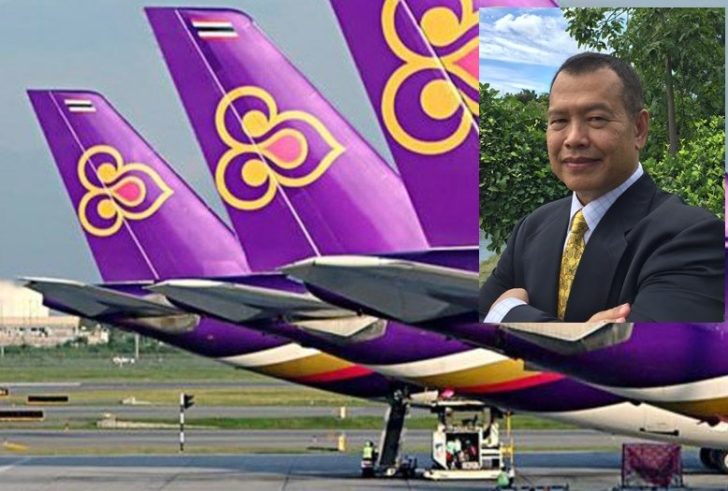| ผู้เขียน | Wirot Poonsuwan |
|---|
Cross-border aircraft financing undertaken by Thai Airways International Plc to build and maintain its fleet is structured as a typical leveraged lease utilizing a mechanism called a special purpose vehicle or SPV.
Under the financial lease arrangement, at the outset, a foreign investor would invest in the 20% portion of the cost of the aircraft. Assuming that a large plane costs US$320 million, the investor would first need to put up a capital outlay of $64 million.
Risk Allocation between Investor and Banks
The investor’s investment at 20% of the aircraft cost or $64 million would take the shape of equity and share capital to set up an SPV, a corporation registered under the laws of an offshore tax haven, such as the Cayman Islands in the Caribbean Sea.
The SPV would then borrow the 80% balance or $256 million, without recourse, from a syndicate of international banks who have no recourse or claims against the investor-shareholder and whose rights are only restricted to the financed airplane and full remedy toward the SPV borrower.
The $320 million proceeds of the combined equity and debt financings are used by the SPV to buy a passenger plane from either of the two dominant manufacturers of the world from each side of the Atlantic. The ownership of the aircraft is vested in the SPV, the lessor, for further leasing to Thai Airways as the lessee.
An option would be granted to Thai Airways to purchase the aircraft at the end of the lease term at an exercise price reflecting the residual value of the fixed asset profitable to the SPV lessor.
The leveraged lease is optimized by tax efficiency as none of the parties involved—the shareholder, SPV, airplane manufacturer and the lending bank—is required to pay any taxes in the jurisdiction on their income.
Cash Flow from Financial Rent as Loan Security
Analogous to the concept of project financing, the lending bank would look at the cash flow from the rent produced over the term of the aircraft lease when they decide to fund the 80% of the cost of the plane. Security for repayment of the loan comes second.
The lease, and the stream of rent that comes with it, will be assigned to the bank as loan security together with an assignment of insurance proceeds as a condition precedent to the drawdown of the credit facility.
In normal circumstances, the rent will be paid directly by Thai Airways, as the lessee, to the SPV lessor.
Upon the occurrence of an event of default by the carrier lessee filing for business rehabilitation, the bank takes over the lease and the unpaid rent, replacing the SPV lessor as the creditor.
A plane mortgage to secure bank lending, common in other parts of the globe, is an issue under Thai law and should be examined in a separate article.
Bank, the Authentic Creditor
For the time being, a cohort of SPV lessors has officially appeared as the creditors in an exhibit attached to the petition by Thai Airways for business rehabilitation filed with the Central Bankruptcy Court.
However, following the trial on August 17 and subsequent to a court order to proceed with the rehabilitation, the lending banks, as the real creditors for the 80% cost of the planes, will likely be substituted for the SPV lessors as new creditors, following their invocation of the lease assignment, so as to apply for a share in the distribution of Thai Airways’ assets within one month of the publication of the court’s rehabilitation order in the Royal Gazette and a local daily newspaper.
Probability of Other Creditors Challenging Aircraft Financing Claim
No matter who, whether it is the bank or the lessor, submits a request for the debt payment, they should carefully review and vet the documents underlying their claim and, if necessary, take corrective measures before filing with the court.
Judging from the public attention to how Thai Airways funded the purchase of its planes, the substantial amounts of the creditors’ claims and the intricacies of cross-border aircraft financing that are not always disentangled, straightforward and crystal clear under Thai law—even though the financial lease is governed by New York law or English law—it is probable that other creditors, having full access to the documents, will be looking to closely scrutinize the scheme, find loose ends and challenge the claim.
Day of Reckoning for Fundamentals of Deal
Whatever academic arguments and legal uncertainties there are associated with international aircraft financing under Thai law for the structure of the transaction and each provision of the lease and the assignment, now is the time to take a compulsory test and defend those theories in judicial proceedings, thereby preserving the entitlement to get paid.
At the very least, the bank submitting the claim should make clear that they have indeed become the new rightful creditor who has properly enforced the lease assignment. If the submitter is the named SPV lessor, it is sensible for them to ascertain that they have not juridically lost their right as a creditor by assigning the lease to the bank.
Wirot Poonsuwan is Senior Counsel and Head of Special Projects at Bangkok law firm Blumenthal Richter & Sumet and can be contacted at [email protected].










